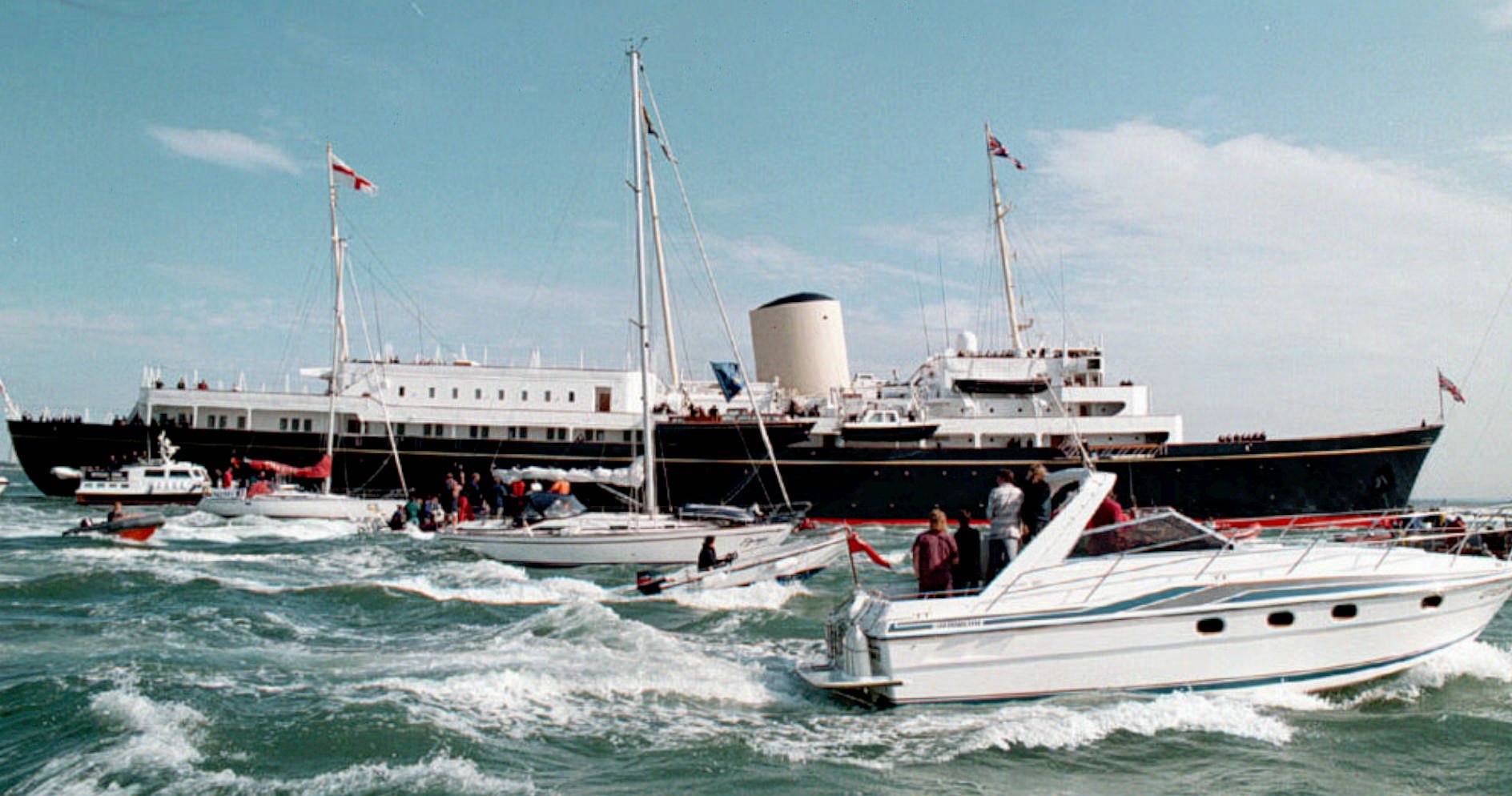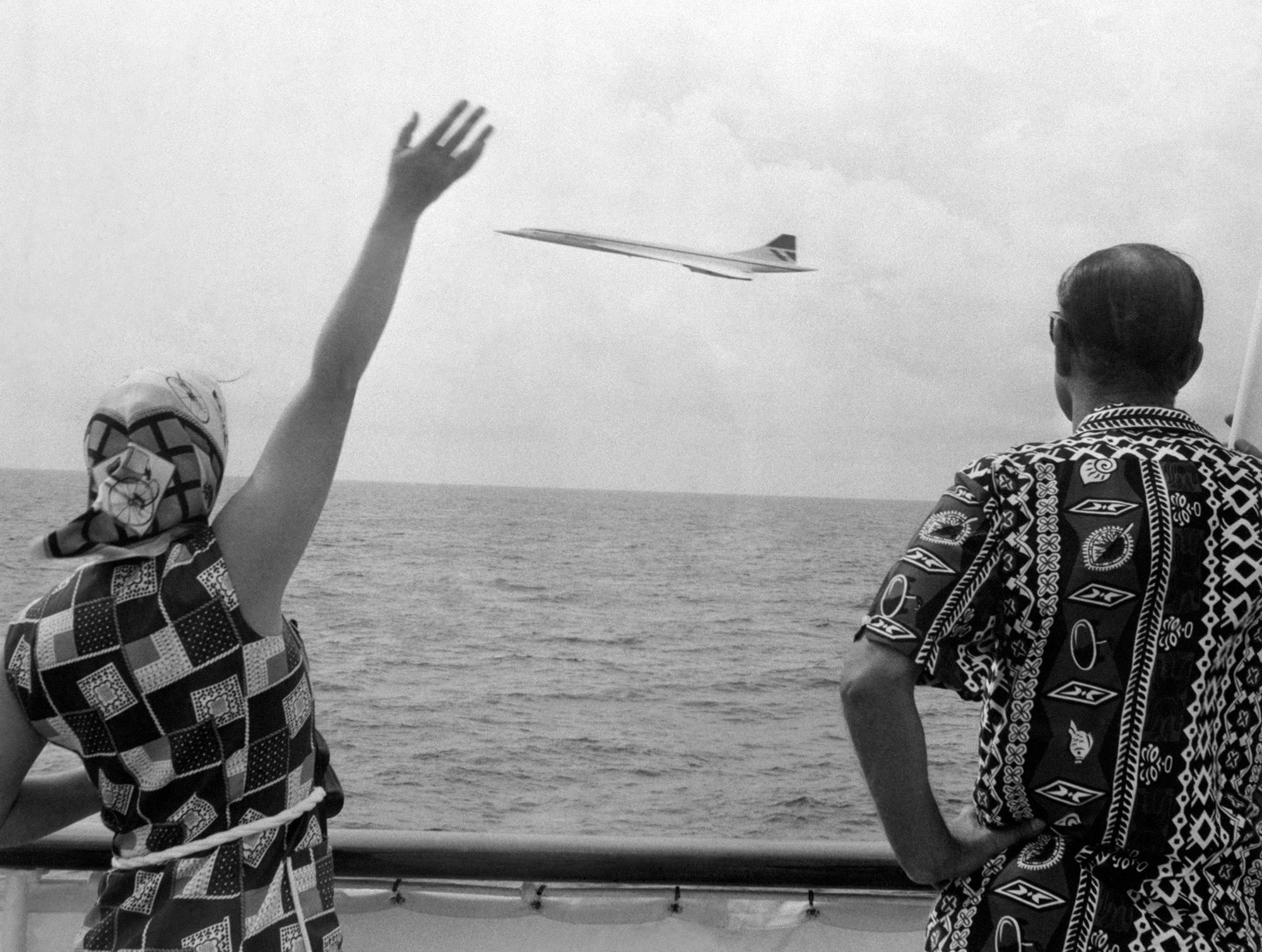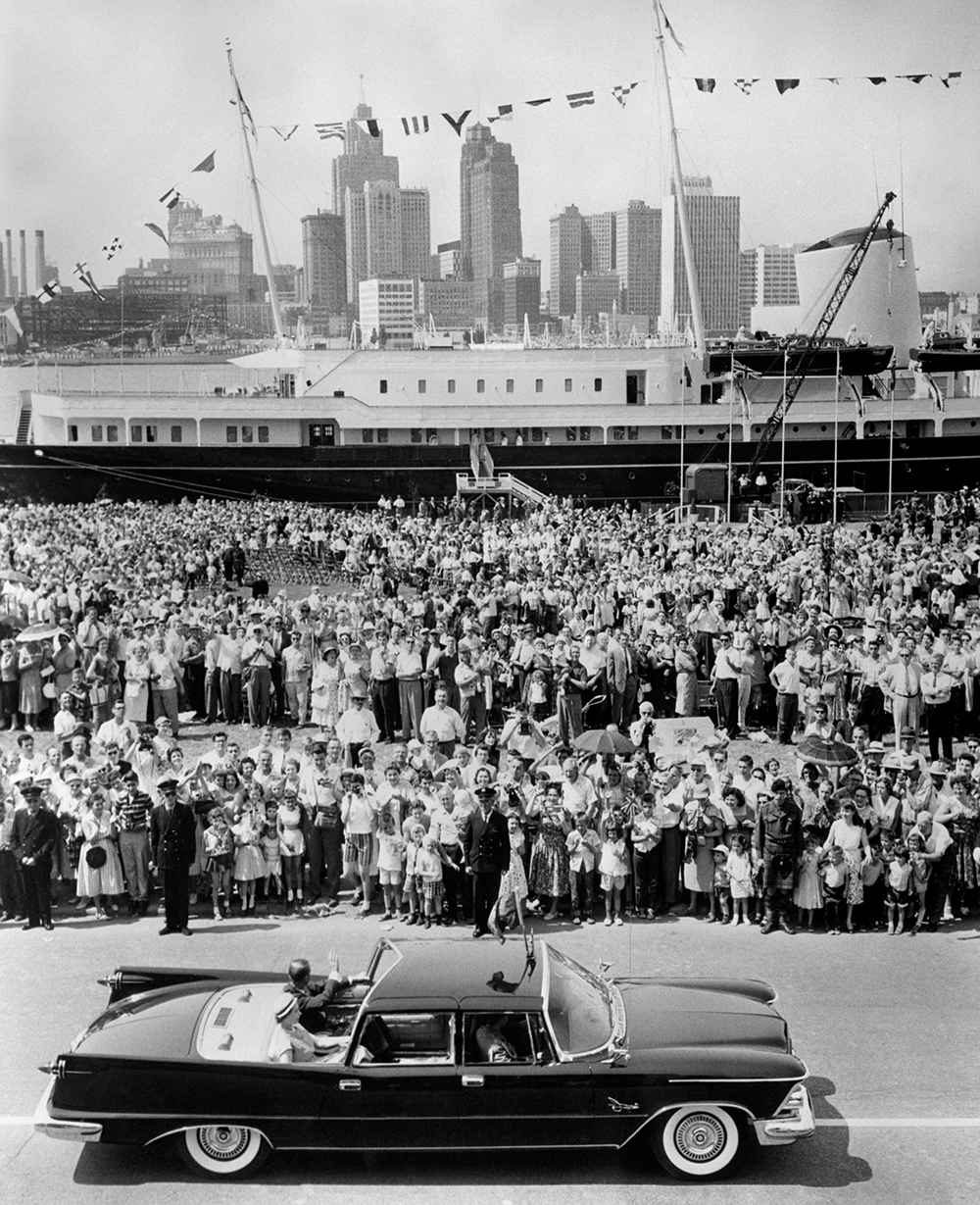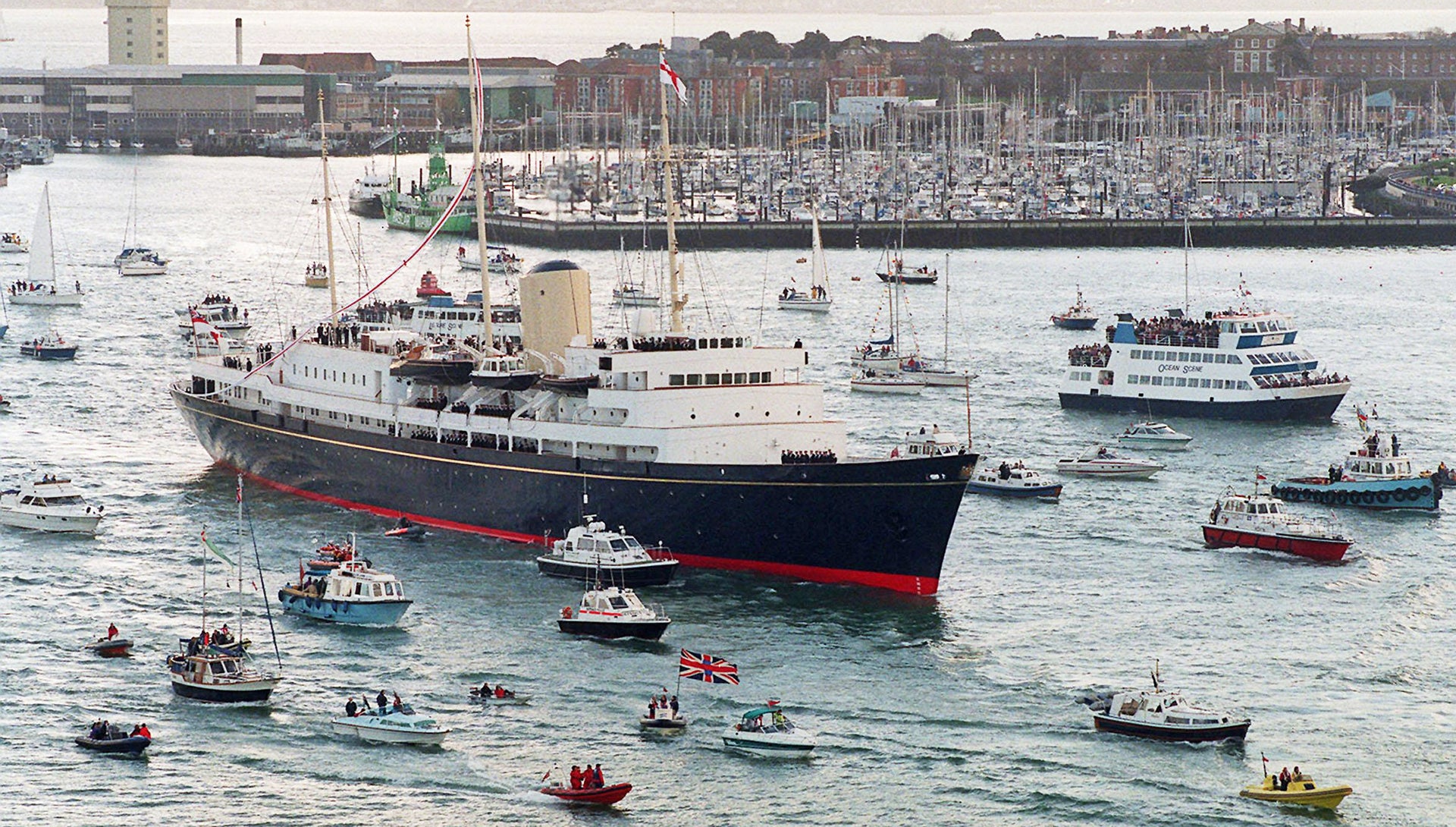A cadre of 50 conservative British lawmakers are pushing a plan to field a new royal yacht through a lottery scheme that would raise roughly 120 million pounds to fund the project. The vessel would be a “floating palace” that would work as a sort of global brand and economic ambassador for Britain and would provide “unique soft power and influence around the globe” according to MP Craig Mackinlay who is heading up the initiative.
The ship would host elite gatherings that highlight British industrial, business, and humanitarian projects and it would be deployed for trade negotiations. The vessel would also be capable of hosting members of the royal family for pleasure purposes just like its predecessors.
A similar idea was splashed all over the British tabloids back in 2012, featuring laughably wondrous drawings of a “new Britannica” that would provide similar functions as its predecessor and more. That initiative never came to fruition, which isn’t surprising as austerity measures following the global economic collapse were all the rage at the time.
Proponents of idea in its current form say the vessel will be needed in a post-Brexit reality, where Britain will be “going it alone” when it comes to global trade. MP Craig Mackinlay elaborated on the idea, stating:
“As we leave the European Union, there has never been a better time to consider how Britain projects herself on the world stage… The new Royal Yacht must belong to the state so it has the benefit of diplomatic immunity when it visits international harbors around the globe… It has to fly the white ensign, because it is crucial that it is crewed by our Royal Navy. And it has to have a strong connection with our royal family, as that is the unique quality that will make its service to our nation succeed… Britain remains the third largest maritime power in the world and we have a unique history and connection with the sea… Our country needs and deserves a floating Royal Palace that can be used to host meetings and exhibitions to showcase the best of British business and project our humanitarian role across the globe.”

Even though procuring this vessel won’t cut directly into the Ministry of Defense’s ever tightening budget, it actually is very likely to do just that in an indirect manner. The truth is that such a vessel will also be a monumental target for all types of enemies of the British Crown. It will need constant protection from multiple mediums of attack, especially when it sails abroad, and seeing that such a vessel will be outfitted nowhere near to that of fighting ship’s standards, it will be especially vulnerable to the threats it will face.
In other words, this ship will still require big dollars and resources from the Royal Navy in order to carry out its supposed mission. And those are dollars the seagoing service definitely doesn’t have. Resources are even more limited when it comes to the availability of the Royal Navy’s surface combatants—and the manpower needed to operate them—that would be needed to provide escort for such a ship. This problem is only going to be exacerbated further when the Royal Navy’s two supercarriers enter operational service in the coming years.
There is also the issue of maintaining and operating the vessel itself. When it comes to things that float, what is a gorgeous traveling example of national pride one year can be a rotting national embarrassment the next if funds aren’t available to keep the vessel in top shape. Even for private yachts, it costs roughly ten percent of the ship’s procurement cost every year to keep it operating, and that rule of thumb is for private luxury vessels used by a small group of people, not a national brand ambassador that hosts high-profile events and makes planned ports of call throughout the year. Also the budget to build such a vessel may be lacking as super yachts can cost upwards of half a billion dollars once fully outfitted.

Although the monarchy’s connection with the sea is historically strong, the last royal yacht, the HMY Britannia, was decommissioned two decades ago. That vessel was part of a long line of 83 royal yachts dating back to when King Charles II took to the throne in 1660.
Beyond entertaining the royal family, during its time on the high seas Britannia was also used to assist in establishing trade deals, but what difference it really made in this regard is largely subjective.

MP Deidre Brock said the following about the proposed plan:
“It sometimes seems all part of a Tory grand plan to drag the UK back to the 50s – the 1850s that is… Of course the Royal Yacht Britannia is a fantastic tourist attraction in Leith in my constituency, but the Tory obsession that a new yacht will somehow magically deliver them trade deals is simply bizarre.”

Regardless of the historic precedent for such a vessel or how it would be funded, the optics surrounding it seem terrible at a time when the Royal Navy is challenged to keep up with its basic tasking and when the country is already receiving two controversial supercarriers at the cost of billions of pounds. And it isn’t even clear if those vessels will both have the funds to operate at the same time, or if they will have their full aircraft complements to deploy with, not to mention the available escorts needed to deploy operationally to troubled regions around the globe. This isn’t even factoring the economic uncertainty and cuts to social programs that are impacting the daily lives or spending habits of average British citizens.

Even the lottery scheme that would supposedly fund the acquisition of the vessel without the use of tax dollars isn’t as easy as it sounds according to conservative cabinet minister David Mellor:
“It’s far more complicated than they seem to think to create a separate lottery for the royal yacht. It would require almost certainly primary legislation and I’m sure no-one is going to thank them for that in the world of Brexit.”

Although the nostalgia behind the idea of a British royal yacht is potent and enticing, there has to be better causes to use the national lottery on than a luxury like this. And regardless of how it is funded, it will still look bad for those who push for it, especially when there are so many other issues in need of focus by British lawmakers right now. Considering the country doesn’t even have a dedicated aircraft for moving around its Prime Minister and their cabinet, building a yacht for national prestige and economic influence just seems like a very antiquated and wasteful idea. And let’s be honest, fielding a fully outfitted supercarrier is a big enough elevation in real naval prestige for Britain, yet alone two of them.
Still, it’s a good reason for us to look back to the past, when vessels like Britannia were national icons.
Contact the author: Tyler@thedrive.com
